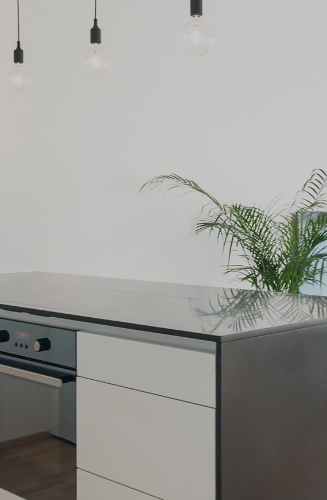Anyone who plans to sell their home dreams of finding a buyer quickly and getting top dollar. However, for that dream to come close to being a reality, your house needs to stand out from the competition. Staging a home and preparing it to sell is a critical part of the process, but it can definitely get pricey.
If you’re working on a shoestring budget, you may think you must keep your home as-is. However, doing so can dramatically affect the outcome of your sale. Luckily, there are several things you can do to get your home show ready without breaking the bank.
Here are 7 budget-friendly tips for boosting your home’s appeal when you’re broke.
1. Save Money on Staging
Staging your home can potentially increase your bottom line, but hiring a professional comes at a cost. However, that doesn’t mean you should skip this step. Instead, focus on ways you can stage for less.
For example, buyers claimed that staging the living room, kitchens, and bedrooms was most important. Therefore, focus on these main areas and consider doing it yourself with a little guidance. Many stagers offer a consultation for a smaller fee to provide recommendations for your home.
Your agent may also be able to give you a few home staging tips. Ultimately, decluttering, cleaning, and removing personal items are excellent places to start.
2. Prioritize Painting
Painting is a relatively inexpensive way to make a big change in your home. Choose paint colors that make the most sense in each room. Overall, stick to neutrals that have mass appeal and enable buyers to picture their belongings in the space.
If you can’t foot the bill for painting everywhere, prioritize the rooms. Start with areas that buyers focus on the most, like kitchens and bathrooms. It’s also a good idea to paint the living room and foyer or whatever room buyers see first when they enter your home.
3. Declutter Inside Closets and Cabinets
Decluttering your home is one of the most effective things you can do when selling. The beauty of it is that it doesn’t cost you a thing. However, don’t reduce the number of items in your rooms by shoving them into closets and drawers.
Buyers look at everything when they’re house hunting, including inside storage areas. If they see a bunch of stuff crammed inside your closet, they’ll assume your house doesn’t have enough storage. Therefore, declutter and stage inside of your cabinets, pantry, closets, drawers, nooks, and crannies.
Leave some space on shelves and in other storage spaces. You want to send the message that buyers won’t have any trouble fitting their things.
4. Maximize Natural Light
Buyers love it when a house has tons of natural light, so don’t cover yours up with heavy drapery or dirty windows. Remove heavy curtains, wash windows, and open blinds and shades. If there are rooms in your home with limited or no natural light, use full-spectrum bulbs that replicate sunlight.
It’s also a good idea to remove window screens when showing a house as they can filter the light. Your agent can always tell buyers that there are window screens that will be put on before they purchase the home.
5. Identify and Eliminate Odors
When you spend every day in your home, you tend to stop noticing the pitfalls, including weird smells. Since it’s common to get nose blind in your home, invite over a few friends to give you some honest feedback.
If you have pets in the home, this is a big one. Using your pal’s honest guidance, eliminate odors by targeting the source. Concentrate on upholstered furniture, rugs, and carpets since the fibers trap odors. Your goal should be to neutralize bad smells, not just cover them up with air fresheners.
6. Clean Inside and Outside
Deep clean your house to make it shine and sparkle for potential buyers. Nobody wants to buy a dirty house or think about cleaning up someone else’s mess. Don’t forget to clean up outside, too.
Pull weeds, mow grass, pick up trash, and pressure wash your driveway and walkways. You can rent a pressure washer from Home Depot or similar stores for a reasonable fee. Tidying up outside is especially important since it affects your home’s curb appeal.
7. Shop Second-hand
If you need to purchase items to get your home ready to sell, shop at second-hand stores or look on online resale sites. If your agent advises you to stage the living room and suggests certain pieces you don’t have, head to the local thrift store. Look for garage sales in your area, borrow from friends, and get creative instead of buying everything new.
The same concept applies to hardware or materials you need for certain repairs. Look for Habitat for Humanity Restore or Dirt Cheap Building Supplies shops to find renovation materials at a deep discount.

 Facebook
Facebook
 X
X
 Pinterest
Pinterest
 Copy Link
Copy Link






